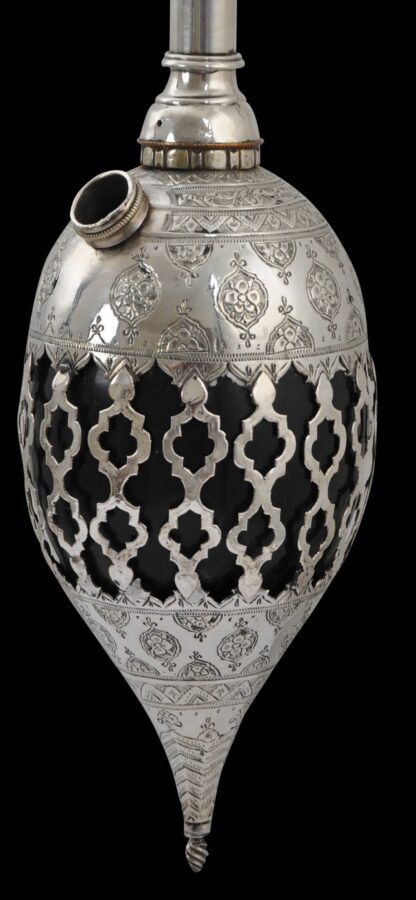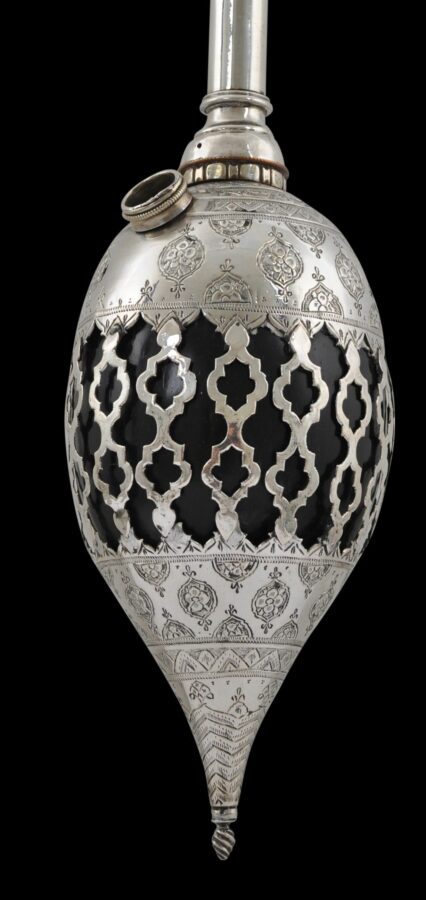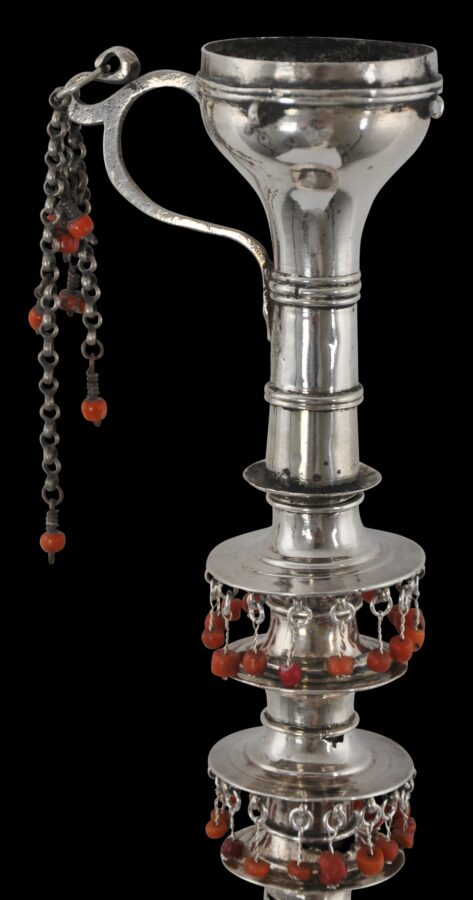Enquiry about object: 7165
Coconut Nargila Base & Stand with Engraved Silver Mounts & Coral Beads
Algeria, North Africa 18th-early 19th century
length: approximately 56cm, width: approximately 9cm, weight: 625g
Provenance
From Howth Castle in Ireland, the ancestral home of the St Lawrence family and the Earls of Howth.
This water pipe or nargila, the portable version of the hookah or huqqa base, has a cone shape based around an elongated coconut shell over which elaborate, high-grade silver mounts have been applied. The silver mounts have been chased with cartouches of flowers, and bands of geometric motifs. The base is fitted with a silver pendant lower end which also is chased with bands of floral and geometric motifs.
The ensemble includes a silver stem and the silver platform in which a tray for the hot coals would have sat. These elements are decorated with dozens of suspended coral beads.
A flexible pipe from which the smoker would have inhaled the smoke would have been attached to the central hole in the nut.
Portable hookah bases such as this were designed to be held by the smoker or his servant and became fashionable from the 17th century onwards.
This example, with its coral beads, most probably is from North Africa – perhaps Algeria. A hookah of similar form and with some coral beads is illustrated in Garnier et al, (2003, p. 93). This example, which arrived from Algeria, was first listed in an inventory in France in 1845. This form of hookah base also was encountered in Persia and India.
The example here is in fine condition. It is accompanied by a cust0m-made stand.
References
Garnier, N., et al, ABD El-Kader et l’Algerie au XIXe Siecle dans les Collections du Musee Conde a Chantilly, Somogy Editions d’Art, 2003.
Zebrowski, M., Gold, Silver & Bronze from Mughal India, Alexandria Press, 1997.






